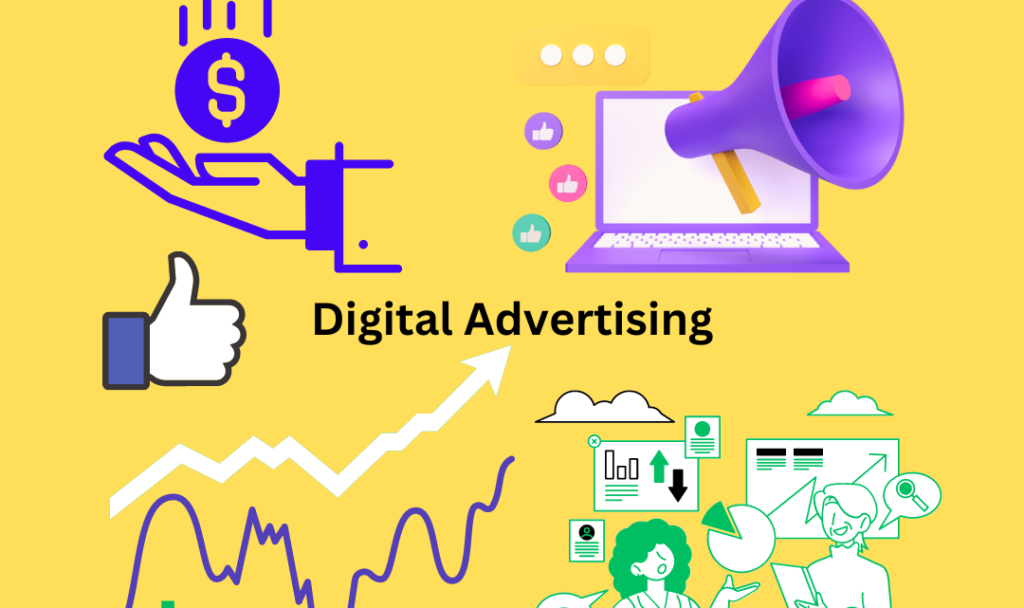
Decoding Digital Marketing: Types & Tactics
In today’s modern world, marketing has evolved significantly due to the rise of digital marketing. Digital marketing involves promoting products or services through online channels, as opposed to traditional methods like print ads and TV commercials. But what digital marketing exactly is, and how does it impact businesses today? Let’s explore the different types and methods of it in this blog and discuss its crucial role in shaping contemporary marketing strategies.”
What Exactly is Digital Marketing?
Digital Marketing is a broad range of online efforts used to promote products or services through digital channels. Unlike traditional marketing, digital marketing uses the internet to reach and engage with target audiences. It includes social media, search engines, email campaigns, and content marketing to connect brands with consumers in the digital world.

Four types of Digital Marketing
Search Engine Optimization (SEO):
SEO is the process of improving a website’s visibility and ranking in search engine results pages (SERPs). By strategically adding relevant keywords, optimizing website design, and acquiring backlinks from popular sources, businesses can increase their online presence and attract organic traffic.
Social Media Marketing (SMM):
SMM uses social media platforms such as Facebook, Instagram, Twitter, and LinkedIn to connect with audiences, build brand awareness, and drive engagement. Through targeted advertising, information through engagement, and community engagement. Companies can use social media to build meaningful relationships with their customers.
Content Management:
Content management revolves around creating and delivering valuable, relevant, and consistent content to attract and retain a specific audience. From blog posts to videos, infographics, and podcasts, content marketing aims to subtly promote products or services to educate, entertain, and inspire customers.
Pay-Per-Click Advertising (PPC):
PPC advertising allows companies to display ads on search engines and other digital platforms and pay money each time someone clicks on their ad. Platforms like Google Ads and Bing Ads, allow advertisers to target specific keywords, demographics, and locations, ensuring their ads reach the right audience at the right time.
Five strategies for Digital Marketing
Search Engine Marketing (SEM):
SEM combines SEO and PPC techniques to increase a website’s visibility in search engine results. While SEO focuses on organic techniques, such as optimizing website content and layout, PPC allows companies to bid on keywords and display ads along with relevant searches.
Email Marketing:
Email marketing is targeted emails sent to prospects and customers to promote products, share updates, and nurture leads. By using personalized content, audience segmentation, and automation tools, companies can deliver tailored messages that resonate with their recipients and drive conversion.
Influencer Marketing:
Influencer marketing involves partnering with social media influencers to promote products or services to their followers. By aligning influencers with their brand values and target audience, companies can leverage their credibility and reach a broader demographic, increasing brand awareness and driving sales.
Affiliate Marketing:
Affiliate marketing involves partnering with affiliates who promote the company’s products or services in exchange for a commission on every sale or lead generated. By leveraging influence and inclusion, companies can expand their marketing and generate revenue at no cost.
Display Advertising:
Display Advertising places visual advertisements, such as banners, images, and videos on websites and digital platforms to reach targeted audiences based on Interest, the Demographies. By targeting specific behaviors companies can maximize the effectiveness of their display ads and increase brand visibility across the web.
The role of Digital Marketing
It plays a vital role in helping businesses reach and communicate effectively with their target audience in today’s hyper-connected world. By leveraging data-driven insights, targeted strategies, and new technologies, digital marketers can create personalized experiences. That engages consumers and provides meaningful interactions for brand awareness. Henceforth Customer relationships increase from generation to management which will contribute to driving the sales. It enables businesses to achieve their marketing objectives in a rapidly evolving digital environment
Conclusion
In conclusion, It encompasses a diverse array of tactics and techniques aimed at promoting products or services through digital channels. By understanding the various types and methods of digital marketing and embracing its pivotal role in today’s business landscape. Businesses can leverage the power of digital marketing to connect with consumers, drive engagement, and achieve their marketing goals in the digital age.
